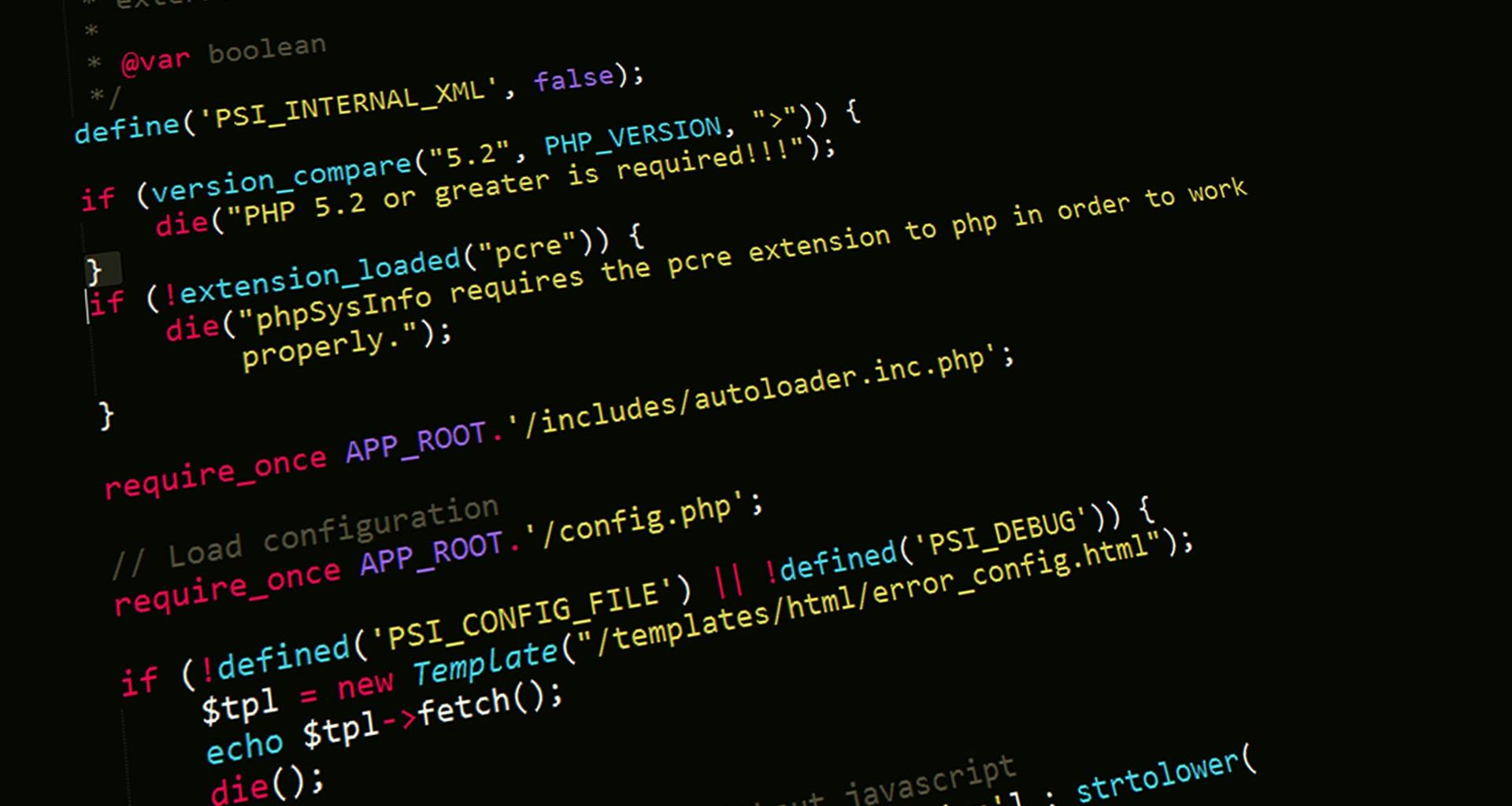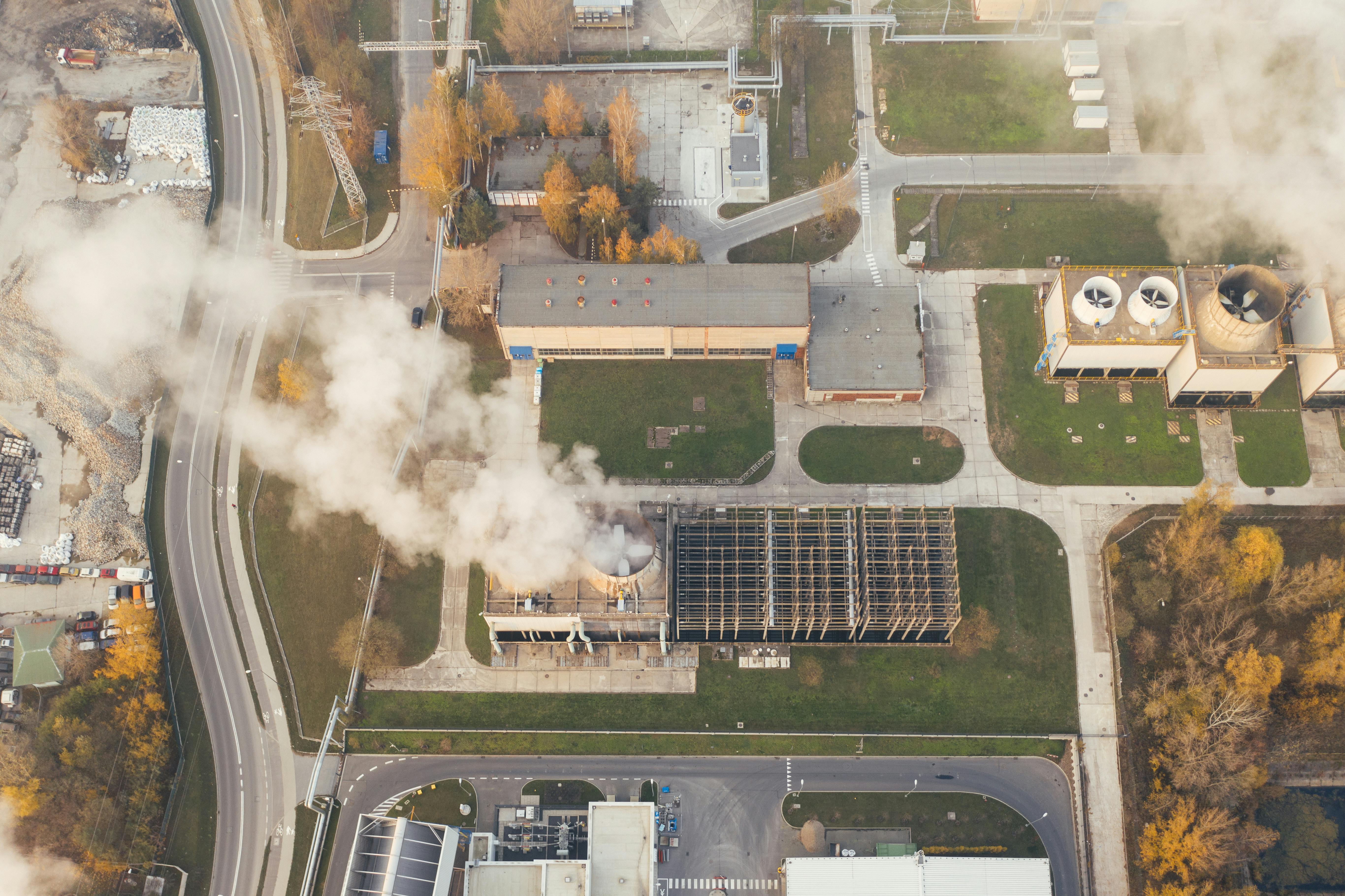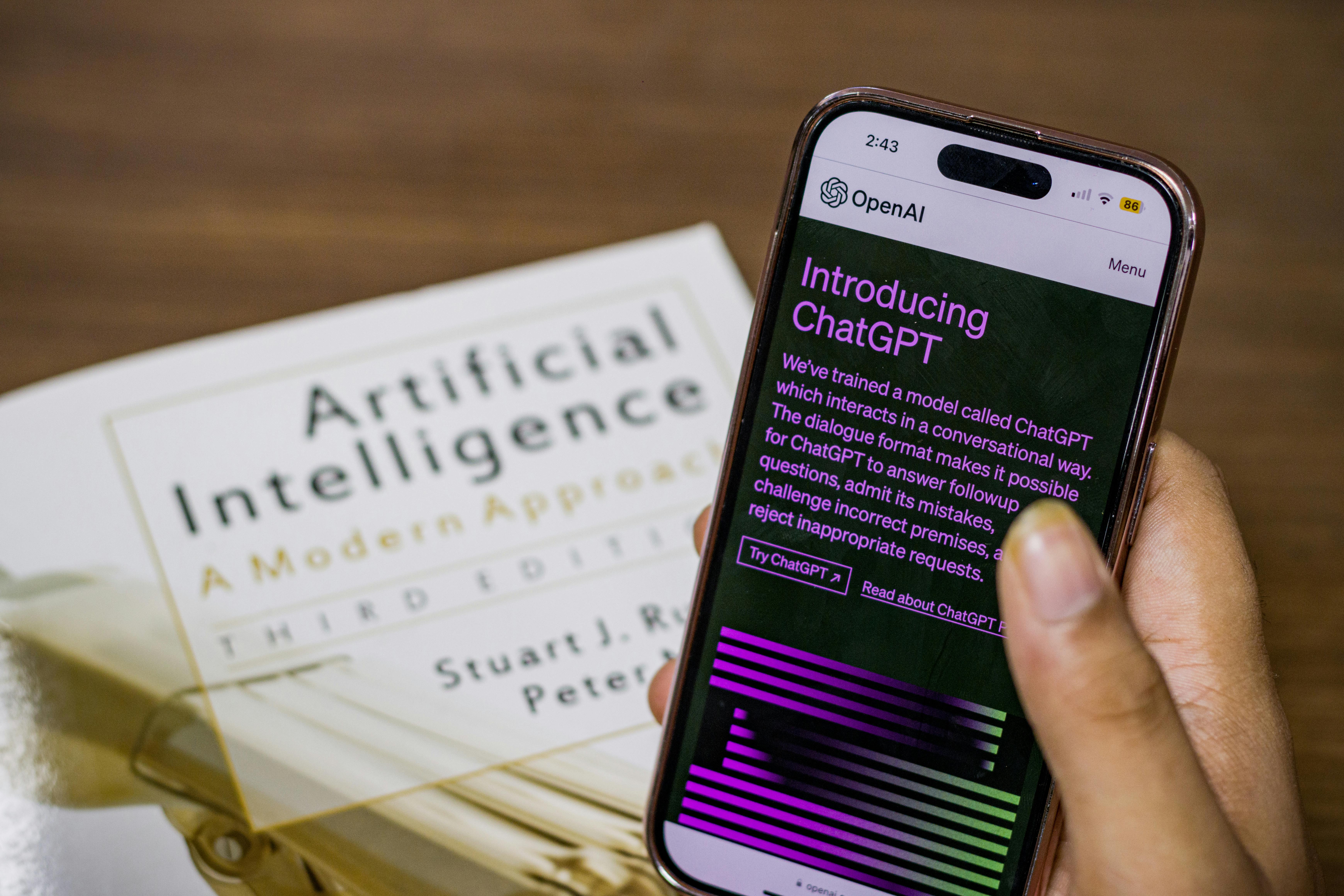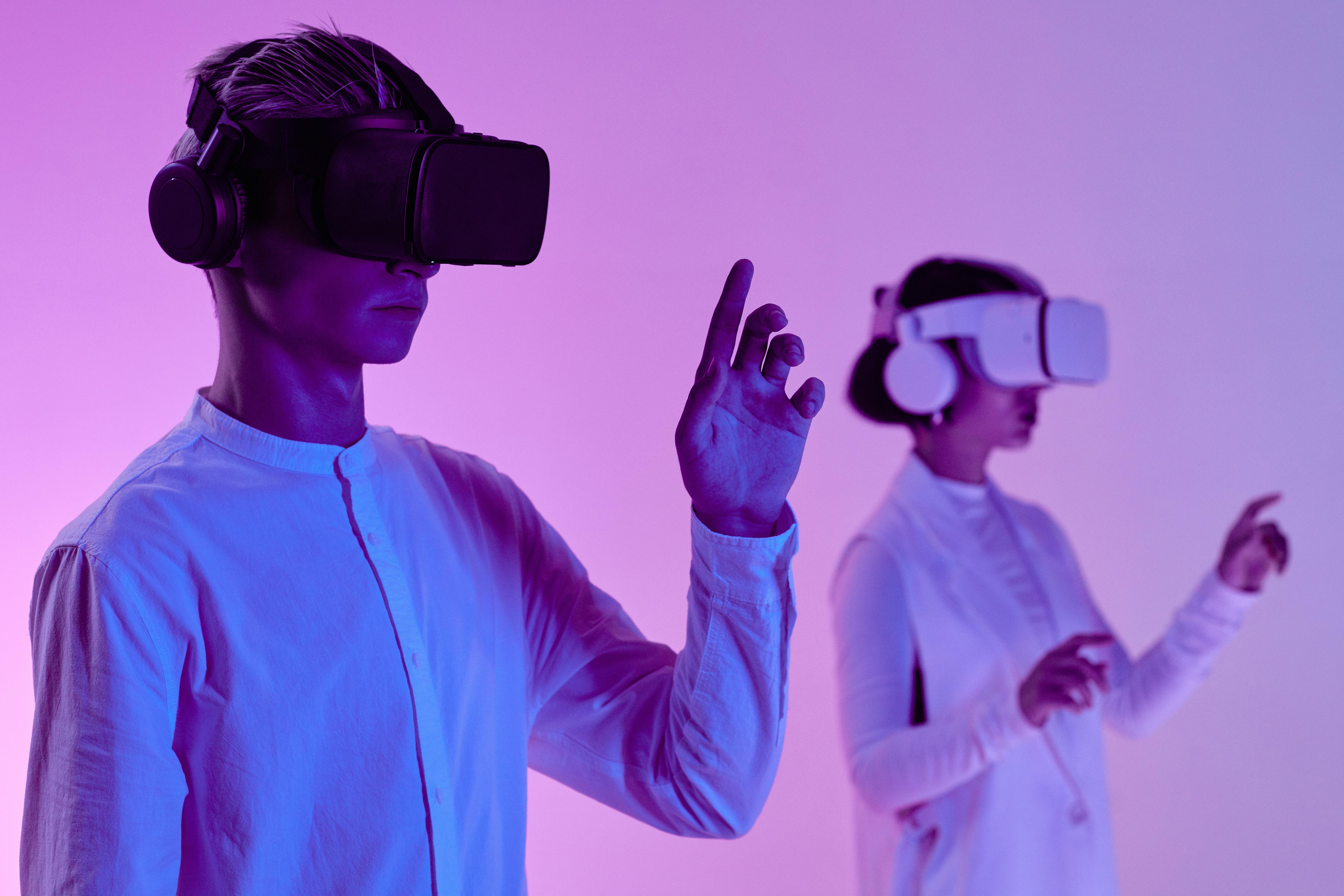
OpenAI: Revolutionizing the Future of Artificial Intelligence
From the outset, OpenAI aimed to provide the necessary space for leading researchers to conduct groundbreaking work together. They were determined to lead in areas that aligned directly with their mission and expertise while actively cooperating with those who shared their values.
In order to fulfill this mission, OpenAI adopted multiple approaches. One such undertaking is OpenAI Research, their central team responsible for pushing forward the scientific breakthroughs needed to build AGI. By encouraging an open and collaborative environment within the scientific community, they aimed to accelerate progress and navigate potential pitfalls.
Additionally, OpenAI focused on publishing most of their AI research in order to foster knowledge sharing and contribute to larger scientific advancements. Acknowledging the transformative nature of AGI technologies, they also identified the need for responsible exploration, highlighting the significance of cooperative orientation.
However, as time went on, OpenAI recognized the possibility of competitive races emerging in AGI development, where adequate precautions might be overlooked for the sake of achieving significant breakthroughs. This realization led to a shift in their approach towards cooperation.
To prevent any such negative consequences while simultaneously promoting AGI development advancements, OpenAI introduced certain technical measures with broad benefits. While specific details remain private due to concerns about safety and security, it is clear that OpenAI emphasizes common good, long-term safety, rigorous research standards, and cooperation across institutions.
With the provision of public goods being one of OpenAI's important pillars, this commitment resides at the heart of their mission. As demonstrated by their advancements in AI technology like GPT-2 and GPT-3, OpenAI seeks to build cutting-edge models that can securely contribute to various applications while ensuring responsible usage.
Furthermore, OpenAI recognizes that societal influence over AGI's deployment is of crucial importance. They are steadfast in the belief that decisions regarding how AGI should be developed and used must involve widespread input to avoid undue concentration of power. In essence, OpenAI seeks to prioritize humanity's collective welfare above all else.
Taking a step forward with this vision, OpenAI has evolved into a more prominent organization known as OpenAI LP. By creating a for-profit entity to partner with donors and investors, they aim to leverage additional resources while effectively addressing AGI's global challenges.
In summary, OpenAI's journey from research to revolution is testament to their commitment to responsible development and collaboration in the sphere of artificial general intelligence. Their focus on open research, technical safety measures, and engagement with society has allowed them to evolve and contribute significantly towards achieving their mission: ensuring the broad benefits of AGI for everyone.
 Exploring GPT (Generative Pre-trained Transformer) Models: Milestones and ImpactsExploring GPT (Generative Pre-trained Transformer) Models: Milestones and Impacts
Exploring GPT (Generative Pre-trained Transformer) Models: Milestones and ImpactsExploring GPT (Generative Pre-trained Transformer) Models: Milestones and ImpactsThe development of GPT models has marked significant milestones in the field of natural language processing (NLP) and has had far-reaching impacts in various applications. openai's pioneering work with GPT has pushed the boundaries of what is possible in language generation, comprehension, and understanding.
Before diving into the milestones achieved, let's clarify what GPT models are. GPT refers to a family of deep learning models that utilize transformers, a type of neural network architecture. Transformers excel at processing sequences of data, making them ideal for tackling language-related tasks.
One of the earliest milestones was the release of GPT-1 in 2018. GPT-1 was trained using unsupervised learning on a massive corpus of text data from the internet. It gained attention for its ability to generate coherent text, though it often struggled with context, coherence, and sometimes produced grammatically incorrect passages.
Building on this success, OpenAI introduced GPT-2 in 2019. This model brought remarkable advancements to language generation and comprehensibility. With billions of parameters, GPT-2 exhibited a much better understanding of various topics and crafted highly coherent and almost indistinguishable human-like text. To address ethical concerns, OpenAI initially only released a smaller version due to fears about potential misuse or generation of disinformation.
Another breakthrough worth noting is fine-tuning GPT-2 through transfer learning. By refining the model on specific tasks with labeled data, researchers achieved remarkable results across a wide range of applications. These applications include machine translation, summarization, question-answering, sentiment analysis, and even writing code based on general instructions.
To further build upon these successes, OpenAI introduced GPT-3 in mid-2020, taking the concept to an entirely new level. Boasting an astounding 175 billion parameters, GPT-3 demonstrated an uncanny ability to prompt-based language generation. It showcased comprehension and context reasoning skills that were truly remarkable, rivaling human performance in certain tasks. Additionally, GPT-3's versatility allowed it to solve a broad array of complex problems by leveraging its immense text training.
The impact of GPT models has been profound in several domains. For instance, they tremendously influenced the way content is curated and generated online. Businesses and publishers have adopted GPT-derived tools to automate content generation, enabling faster output production and freeing human resources for more creative work.
GPT models have also found applications in customer support, where virtual assistants built upon them provide prompt and accurate responses to inquiries, reducing human response time and improving customer satisfaction.
Furthermore, in the field of education, these models have played a pivotal role in automated marking of student assignments, providing detailed feedback in real-time, helping educators handle larger class sizes effectively.
The global impact of GPT models is evidenced through translation services improving their capabilities by leveraging GPT's deep language understanding, ultimately bringing people across the world closer together.
However, despite these monumental achievements, ethical concerns surrounding potential misuse remain. The unintended propagation of biased or fabricated information poses societal challenges. OpenAI acknowledges these concerns and actively strives to develop principles that balance benefits with safety considerations.
Exploring GPT models has unveiled a remarkable set of tools that push the boundaries of what machines can achieve in terms of understanding and generating language. The milestones experienced so far exemplify the immense potential of these models, as well as the responsibility attached to advancing this technology for a better future.
 Ethical Considerations and Challenges in OpenAI's DevelopmentEthical Considerations and Challenges in openai's Development
Ethical Considerations and Challenges in OpenAI's DevelopmentEthical Considerations and Challenges in openai's DevelopmentOpenAI’s quest to develop powerful artificial intelligence (AI) systems comes with several ethical considerations and challenges that need careful consideration. As AI technologies continue to evolve, it becomes imperative to address these concerns to ensure responsible and safe deployment of AI systems.
1. Safety:
Ensuring the safety of AI systems is a primary ethical concern. As AI becomes more sophisticated, there is a need to develop robust safety mechanisms to prevent unintended consequences. OpenAI emphasizes research on alignment, which aims to ensure that an AI system’s goals are aligned with human values and do not pose threats to humanity.
2. Bias and Fairness:
AI systems often learn from vast amounts of data, and if this data is biased, the resulting algorithms can perpetuate or reinforce bias. Developing AI models with fairness and reducing discriminatory or biased behavior remains a challenge. OpenAI acknowledges the importance of addressing bias in AI systems and actively works on mitigating biases through careful training data curation and improved model development processes.
3. Privacy:
With the increasing adoption of AI technologies, privacy concerns become more prominent. Improper use or mishandling of data raises ethical questions surrounding data protection and privacy. OpenAI recognizes these concerns and emphasizes respecting users' privacy rights while developing AI systems that prioritize individual data protection.
4. Economic Implications:
As powerful AI systems emerge, questions arise about their impact on employment and economic inequality. AI-enabled automation may lead to job displacements in some sectors, causing hardships for affected individuals. OpenAI acknowledges these concerns and aims to use any influence they have over deployment policies to minimize such negative impacts and work proactively towards ensuring a broadly distributed benefit.
5. Dependence and Power Concentration:
The potential concentration of power due to advancements in AI technology poses ethical challenges. As the development continues, OpenAI aims to ensure that access to benefits derived from artificial general intelligence (AGI) is broadly distributed, thereby avoiding monopolistic or exploitative technological ownership.
6. Accountability and Transparency:
Another ethical consideration revolves around ensuring accountability and transparency in AI systems. As AI technology continues to evolve, it becomes crucial to establish mechanisms that make AI developers responsible for the behavior and consequences of their systems. OpenAI emphasizes enhancing research practices to make models understandable and accountable.
7. Unintended Uses:
AI technologies developed by OpenAI may have unintended uses or be manipulated by malicious actors for illicit purposes. The challenge lies in anticipating potential misuse and establishing safeguards to prevent any harm caused by such misuse. OpenAI commits to providing public goods, sharing safety research, and cooperating with other organizations to reduce the risks associated with AI's malicious use.
In conclusion, OpenAI recognizes and addresses various ethical considerations to promote ethical development and deployment of AI technologies. Through deliberate research practice, mitigation of biases, respect for privacy, and commitment to safety precautions, OpenAI aims to ensure a more responsible approach towards creating powerful AI systems that benefit humanity as a whole.
 OpenAI’s Contribution to Natural Language Processing: Breakthroughs and Applicationsopenai has made significant contributions to the field of Natural Language Processing (NLP) through numerous breakthroughs and impactful applications. One of the key achievements by OpenAI is the development of the GPT (Generative Pre-trained Transformer) series of language models.
OpenAI’s Contribution to Natural Language Processing: Breakthroughs and Applicationsopenai has made significant contributions to the field of Natural Language Processing (NLP) through numerous breakthroughs and impactful applications. One of the key achievements by OpenAI is the development of the GPT (Generative Pre-trained Transformer) series of language models. Starting with GPT-1, OpenAI introduced a pre-training and fine-tuning paradigm, which enables the models to learn from massive amounts of data and then be fine-tuned for specific tasks. These models use unsupervised learning, where they are trained on a large corpus of text data without any specific task in mind. This process allows the models to develop a rich understanding of language and context.
GPT-2, famously known for its size and accuracy, made headlines upon its release. It demonstrated extraordinary language generation capabilities and set new benchmarks in many NLP tasks. However, due to concerns about potential misuse in generating fake news or malicious content, OpenAI released a smaller variant initially.
In subsequent years, OpenAI progressed with the development of even larger models such as GPT-3. With 175 billion parameters, GPT-3 dwarfs any previous iteration in terms of scale. This model's architecture enabled it to exhibit remarkable versatility across multiple NLP domains.
The groundbreaking applications of OpenAI's contributions to NLP are abundant. These include automated summarization, where models can distill lengthy documents into concise bullet points or summaries. Additionally, chatbots powered by OpenAI models demonstrate an extended ability to carry out conversational tasks naturally and uphold engaging dialogues with users.
Machine translation also benefits from OpenAI's advancements as their models achieve state-of-the-art performance by training on large volumes of multilingual data. Creative writing assistance is another application, aiding authors in generating new ideas or designing plots by suggesting phrases or even composing paragraphs based on iterative prompts.
Using OpenAI's vast resources and advanced language understanding capabilities like prompt engineering, users can employ pre-trained models or build their own specific-domain models that perform tasks like question-answering, text completion, sentiment analysis, and more.
Beyond individual applications, OpenAI fosters collaborations with various organizations to integrate cutting-edge NLP technology into real-world solutions. Through partnerships and API access, enterprises can leverage OpenAI models to enhance customer interactions, automate customer support, analyze feedback at scale, or streamline content generation across industries such as finance, healthcare, and media.
Overall, OpenAI's contributions in NLP have revolutionized the field and pushed the boundaries of what is possible in language-related tasks. Their breakthroughs have fueled a wave of exciting applications and brought us closer to leveraging the potential of artificial intelligence for practical use-cases in natural language processing.
 The Role of OpenAI in Advancing Robotics and Autonomous Systemsopenai has played a significant role in advancing the field of robotics and autonomous systems, contributing to both their development and application. With their innovative technologies and research, OpenAI has pushed forward the boundaries of what is possible in this domain.
The Role of OpenAI in Advancing Robotics and Autonomous Systemsopenai has played a significant role in advancing the field of robotics and autonomous systems, contributing to both their development and application. With their innovative technologies and research, OpenAI has pushed forward the boundaries of what is possible in this domain.Through years of dedicated efforts, OpenAI has made significant strides in improving the capabilities of robots and autonomous systems. They have pursued cutting-edge approaches that empower machines to perform increasingly complex tasks, both manually controlled and autonomously. By leveraging deep reinforcement learning algorithms, OpenAI has facilitated robots in acquiring new skills through trial and error.
One notable achievement by OpenAI is their humanoid robot named "Dactyl." OpenAI researchers used techniques like reinforcement learning to train Dactyl's hands to manipulate objects with precision. Through this project, OpenAI demonstrated the potential for robots to acquire dexterity comparable to human capabilities using reinforcement learning techniques.
Moreover, OpenAI has actively participated in robotics competitions like DARPA's Robotics Challenge, where they showcased how intelligent algorithms and advances in perception can significantly enhance robot performance. Their involvement in such events highlights the practical applications of their research and its potential impact on real-world scenarios.
In addition to training individual machines, OpenAI has also been working on developing swarm robotics — where groups of robots can collaborate effectively as a unit by sharing information and tasks. This approach showcases OpenAI's commitment to exploring novel ways for multiple robots to interact and complement each other’s abilities, ultimately striving towards achieving collective intelligence.
To further support advancements in robotics and autonomous systems, OpenAI places tremendous emphasis on creating accessible platforms and tools. They provide simulation environments like Gym, which enable researchers worldwide to test their algorithms within realistic virtual scenarios. Such tools significantly reduce the barriers to entry for innovators in the field.
Furthermore, through collaborations with other organizations and researchers, OpenAI fosters a community-driven approach that encourages knowledge sharing and collective progress. Their research papers and code repositories act as valuable resources for the broader scientific community and speed up innovations in multidisciplinary areas.
OpenAI's contributions have paved the way for the integration of robots into various sectors of society. From industrial automation and healthcare to mobility solutions and even space exploration, their work has the potential to shape the future of robotics profoundly.
However, OpenAI also acknowledges the ethical considerations related to the development and deployment of autonomous systems. They are actively involved in comprehensive discussions surrounding the responsible use of AI, promoting transparency and societal awareness. As a leader in artificial intelligence research, OpenAI strives to deploy their technology in a way that benefits humanity while minimizing risks.
With ongoing developments and continuous efforts in research and innovation, OpenAI is at the forefront of advancing robotics and autonomous systems. Their contributions not only enhance our understanding of intelligent machines but also have far-reaching implications for industries, daily life, and the future development of AI-infused robotics.
 Collaborations Between OpenAI and Major Tech Industries: Shaping the Future TogetherCollaborations between openai and major tech industries have been pivotal in shaping the future of artificial intelligence. OpenAI, as a renowned research organization, has entered into various partnerships with leading tech companies to combine their expertise and work in synergy towards common goals.
Collaborations Between OpenAI and Major Tech Industries: Shaping the Future TogetherCollaborations between openai and major tech industries have been pivotal in shaping the future of artificial intelligence. OpenAI, as a renowned research organization, has entered into various partnerships with leading tech companies to combine their expertise and work in synergy towards common goals.One significant collaboration was established between OpenAI and Microsoft in 2019. Under this partnership, OpenAI agreed to make Microsoft its exclusive cloud provider, utilizing Microsoft Azure's advanced infrastructure to scale their artificial intelligence models efficiently. This collaboration enables OpenAI to leverage Microsoft's extensive resources and reach, ensuring their AI research can progress rapidly. Similarly, Microsoft benefits from gaining exclusive access to cutting-edge AI technologies developed by OpenAI.
In addition to Microsoft, OpenAI has also formed collaborations with other tech giants. In 2020, OpenAI partnered with IBM Research to explore ways of making machine learning models more trustworthy and explainable. The aim was to develop methods that would allow these models to provide more transparent insights into their predictions, enhancing the trustworthiness and accountability of AI systems.
Furthermore, OpenAI has collaborated with major industries outside of the tech sector. They joined forces with pharmaceutical company Merck in an effort to accelerate drug discovery using AI. By leveraging OpenAI's expertise in deep learning and computational biology, along with Merck's vast knowledge in drug development, they aim to discover breakthrough medicines more efficiently.
OpenAI has also actively collaborated with the gaming industry. Their collaboration with Valve Corporation—an influential game development company—resulted in the development of Dota 2 AI technology called OpenAI Five. Through this collaboration, OpenAI created game-playing algorithms that could compete against professional human players in real-time strategy games. Such partnerships not only push the boundaries of AI in gaming but also pave the way for advanced virtual environments and simulations.
Collaborations have become essential for OpenAI as they seek diverse sources of knowledge and resources from industry pioneers. These partnerships allow them to access massive computing power, domain-specific expertise, and extensive datasets. In return, OpenAI contributes its cutting-edge research insights to solve industry-specific challenges.
In conclusion, collaborations between OpenAI and major tech industries bring together industry leaders to shape the future of artificial intelligence. These collaborations strategically combine the resources, expertise, and research efforts of diverse entities towards common goals. The partnership between OpenAI and major tech industries holds immense potential for groundbreaking advancements that will transform how AI impacts our lives in the near future.
 DALL·E, Codex, and Beyond: Innovations in AI Creativity and Programmingopenai has consistently pushed the boundaries of artificial intelligence (AI) research and showcased remarkable advancements in recent years. One such breakthrough is the creation of DALL·E, a mind-boggling neural network model that is capable of extraordinary image synthesis capabilities.
DALL·E, Codex, and Beyond: Innovations in AI Creativity and Programmingopenai has consistently pushed the boundaries of artificial intelligence (AI) research and showcased remarkable advancements in recent years. One such breakthrough is the creation of DALL·E, a mind-boggling neural network model that is capable of extraordinary image synthesis capabilities.DALL·E, introduced in early 2021, revolutionizes the way we think about AI-generated images. Unlike traditional models that rely on manipulating existing images or editing specific attributes, DALL·E ingeniously builds an image from scratch based on a textual description input provided by the user. This uncanny ability to generate imagery purely from text has sparked both awe and intrigue within the AI community and beyond.
The uniqueness of DALL·E lies in its ability to understand textual prompts and generate incredibly creative and contextually relevant visual outputs. It opens up possibilities for creating entirely novel concepts, surreal compositions, and blends of objects that defy reality. Stunningly, DALL·E can even conjure up intricate scenes by merging contrasting elements in unimaginable ways.
Codex is another groundbreaking product by OpenAI that greatly simplifies programming through natural language understanding. Harnessing OpenAI's GPT-3 language model as its backbone, Codex empowers developers with an AI assistant that understands code logic and provides useful suggestions while coding for various programming languages.
This innovative invention significantly enhances developer productivity by speeding up development cycles, reducing errors, and bridging knowledge gaps. As developers interact with Codex using natural language explanations or code snippets, they receive insightful autocompletions, bug fixes, or even entire code routines tailored to their requirements.
Beyond expanding the frontiers of creativity and programming, OpenAI continues to explore further possibilities in AI innovation. Table-to-text capability, for instance, leverages neural network models to transform structured data into coherent human-readable paragraphs. The possibilities arising from this technology are vast—automated report writing or generating news articles from numerical information are just a couple of promising avenues.
OpenAI has also ventured into audio domain innovations. MuseNet, one of their projects, focuses on generating original and harmonious musical compositions across various genres. By training the model on vast collections of sheet music, MuseNet can create convincing orchestral scores or even combine qualities of multiple composers.
Similarly, OpenAI's LJ Speech is an exceptional technology where AI learns to mimic human-like speech patterns by training on enormous amounts of data. This offers endless potential applications in voice-overs, virtual assistants, and speech synthesis for people with speech disabilities.
OpenAI showcases a philosophy strongly rooted in ethics. Despite advancements like these bringing about exciting new possibilities, they understand the need for comprehensive safeguards. Striking a balance between enabling augmentative AI technologies and ensuring ethical usage takes center stage, and it motivates continuous research at OpenAI.
As we eagerly anticipate what lies ahead on OpenAI's AI exploration roadmap, there is no doubt that their breakthroughs in creativity with models like DALL·E and programming assistance through Codex have unlocked immense potential. The impact extends beyond academic circles to industries like entertainment, design, software development, and many others. OpenAI exemplifies the power of innovation at the intersection of AI and human creativity.
 Education and the Workforce: How OpenAI is Transforming Learning and Job MarketsEducation and the workforce are interconnected elements of our society that greatly influence each other. In recent years, with technological advancements and the ever-growing complexity of the job market, the need for innovative solutions in education has become more pronounced than ever before. openai, a leading artificial intelligence research lab, is playing a transformative role in revolutionizing learning and subsequently reshaping job markets as we know them.
Education and the Workforce: How OpenAI is Transforming Learning and Job MarketsEducation and the workforce are interconnected elements of our society that greatly influence each other. In recent years, with technological advancements and the ever-growing complexity of the job market, the need for innovative solutions in education has become more pronounced than ever before. openai, a leading artificial intelligence research lab, is playing a transformative role in revolutionizing learning and subsequently reshaping job markets as we know them.OpenAI's impact on education can be seen through several lenses. One prominent aspect is the utilization of AI technologies to personalize education for students. Using advanced algorithms, OpenAI-powered educational platforms can assess individual student needs and customize learning experiences accordingly. This tailored approach ensures that students receive targeted and adaptive instruction, which optimizes their retention and knowledge acquisition. By promoting personalized learning pathways, OpenAI enhances educational outcomes by reconciling any skill gaps that traditional classroom delivery may neglect.
Additionally, OpenAI’s technology acts as a catalyst in augmenting educators' roles. AI-powered chatbots and virtual teaching assistants can assume certain aspects of administrative tasks, freeing up educators' time to focus on high-value activities such as providing guidance, critical thinking facilitation, and nurturing soft skills development in students. With OpenAI’s support, educators gain productivity and can deliver higher quality instruction.
OpenAI's impact extends beyond traditional education settings to encompass upskilling and reskilling opportunities for workers facing an evolving job market. Advancements in automation, machine learning, and artificial intelligence are profoundly altering the nature of employment. OpenAI recognizes this shift and promotes the development of tools that empower individuals to evolve their skills in tandem with changing industries.
Through intelligent tutoring systems, OpenAI helps individuals pursue a lifelong learning approach by enabling continuous development at all career stages. By personalizing curriculum recommendations and interests-based guidance offered by AI companions, workers can acquire necessary skills to transition into growing fields and meet the aspirations of emerging jobs. This enables learners to gain industry-relevant expertise and stay competitive in an ever-evolving job landscape.
Furthermore, OpenAI actively participates in the development and accessibility of massive open online courses (MOOCs), reinforcing their commitment to democratizing education. By leveraging AI techniques to enhance MOOC platforms, OpenAI furthers the mission of reaching learners globally, eliminating socio-economic barriers, and providing education equality across diverse demographics. This inclusivity amplifies educational opportunities for individuals who might have traditionally faced obstacles preventing them from pursuing higher learning or exploring unconventional career paths.
While OpenAI's transformative impact on education and the job market is undeniable, it is essential to acknowledge its potential challenges. Ensuring continuous upgrades to AI systems, sophisticated feedback processing, and personalized improvements remain key considerations. Ethical boundaries related to student data privacy, dependence on technology alone for instruction, and equitable access to AI-powered resources also pose crucial questions that need careful attention from educators, policymakers, and AI developers alike.
In conclusion, the advent of OpenAI and its vast range of applications in education and the workforce has paved the way for a profound transformation in these domains. Personalized learning experiences align with individual student needs, augmenting the role of educators and ensuring better educational outcomes. Simultaneously, OpenAI empowers workers by offering lifelong upskilling opportunities to remain adaptable in an evolving job market landscape. Striking a balance between embracing AI technologies while maintaining critical socio-economic considerations will be key to responsibly integrating this transforming force into our educational systems and employment sector.
 Tackling Climate Change with AI: Insights from OpenAI’s Environmental InitiativesTackling Climate Change with AI: Insights from openai’s Environmental Initiatives
Tackling Climate Change with AI: Insights from OpenAI’s Environmental InitiativesTackling Climate Change with AI: Insights from openai’s Environmental InitiativesClimate change is one of the most pressing issues facing humanity today, and addressing it requires innovative solutions from every sector. OpenAI, a renowned artificial intelligence research laboratory, has recognized the urgent need to combat climate change and has taken notable strides in this domain through its environmental initiatives. In this blog post, we will delve into some of the key insights derived from OpenAI's endeavors in incorporating AI technologies to combat climate change.
Firstly, OpenAI employs AI techniques to optimize energy use, reducing carbon emissions in the process. Recognizing the colossal carbon footprint associated with training large models, OpenAI actively works on developing scaled-down versions while minimizing their performance trade-offs. By building efficient models and using advanced algorithms such as deep reinforcement learning, OpenAI takes concrete steps toward reducing energy consumption and mitigating the environmental impact of AI research.
Furthermore, OpenAI promotes research and development for excellence in monitoring and predicting environmental trends. With growing concerns about climate-related disasters like wildfires, floods, and hurricanes, accurate prediction systems are invaluable for mitigation efforts. Through partnerships with various organizations, OpenAI employs machine learning to analyze vast amounts of data related to past climate patterns. This approach enables the identification of crucial indicators and patterns that contribute to better climate predictions and aids in designing more robust mitigation strategies.
Another noteworthy aspect of OpenAI's environmental initiatives is fostering collaboration through open-source resources. The complexities of climate change require a collective effort from researchers, policymakers, and communities worldwide. To drive progress in combating climate change effectively, OpenAI actively publishes research papers and shares valuable code repositories with the broader AI research community. By doing so, they encourage collaboration across different domains, facilitate knowledge exchange, and accelerate advancements in sustainable technological solutions.
Moreover, OpenAI recognizes that addressing climate change necessitates policy interventions at a global scale. They emphasize the significance of policymakers understanding the interactions between AI and climate change, encouraging them to adopt evidence-based policies that drive sustainability. By actively engaging with policymakers, OpenAI aims to contribute vital insights on the potential risks and benefits of leveraging AI in climate change mitigation.
In conclusion, OpenAI endeavors to combat climate change through its powerful AI technologies and responsible practices. By optimizing energy use, developing advanced prediction systems, fostering collaboration amongst researchers, and providing policymakers with valuable insights, OpenAI demonstrates its commitment to mitigating the environmental impact of AI research. With continued efforts and contributions from organizations like OpenAI, there is hope for a more sustainable future, where AI acts as a crucial ally in our fight against climate change.
 Debating AI Governance: How OpenAI Approaches Regulation and Policy IssuesIn the world of artificial intelligence (AI), openai has emerged as a leading organization pushing the boundaries of research and development. As AI technology advances at an exponential rate, concerns regarding its responsible use and potential negative consequences have also gained prominence. OpenAI recognizes this need for careful oversight and is actively engaged in shaping the policies and regulations surrounding AI governance.
Debating AI Governance: How OpenAI Approaches Regulation and Policy IssuesIn the world of artificial intelligence (AI), openai has emerged as a leading organization pushing the boundaries of research and development. As AI technology advances at an exponential rate, concerns regarding its responsible use and potential negative consequences have also gained prominence. OpenAI recognizes this need for careful oversight and is actively engaged in shaping the policies and regulations surrounding AI governance.Debating AI Governance: How OpenAI Approaches Regulation and Policy Issues is a foundational document created by OpenAI, laying out their approach towards ensuring safe, beneficial, and equitable deployment of AI systems. Rather than claiming to have all the answers, OpenAI acknowledges the complexity of such issues and aims to contribute to the ongoing societal dialogue around AI governance.
OpenAI commits itself to two core principles. Firstly, they prioritize maximizing the benefits of AI for humanity in general, rather than concentrating power in one entity or exclusively benefiting any single party. OpenAI subscribes to the belief that AI's fruits should be shared widely, addressing potential inequalities that may arise from its adoption.
Secondly, OpenAI commits itself to long-term safety in their research goals. They acknowledge that AI has the potential to surpass human ability in different areas in the future and could have broad societal implications. OpenAI seeks to ensure that advanced AI systems are developed with safety precautions baked into their design and implementation.
OpenAI's set of cooperative approaches demonstrates their intention to actively cooperate with other research institutions and collaborate on safety protocols and standards. Their aim is to create a global ecosystem where AI researchers work together towards addressing common challenges instead of viewing each other merely as competitors.
While OpenAI has traditionally published most of its AI research openly, they acknowledge that safety and security concerns might necessitate certain limitations on sharing information without inhibition. The Debating AI Governance paper emphasizes this flexibility needed in striking a balance between openness, collaboration, and limiting risks associated with misuse or unintended consequences.
Regarding the more controversial aspect of military applications of AI, OpenAI commits not to develop AI systems that are exclusively aimed at causing harm or enabling acts contrary to human values. They are cautious about their technology being employed in potentially unethical ways and emphasize the importance of stringent guidelines and regulatory frameworks governing the military use of AI.
OpenAI understands that they cannot single-handedly address all policy and governance challenges related to AI on their own. They actively seek partnerships with other organizations and policymakers to contribute policy ideas, perform technical research concerning AI's societal impact, and advocate for legislative frameworks that ensure responsible AI deployment.
In conclusion, Debating AI Governance: How OpenAI Approaches Regulation and Policy Issues outlines OpenAI's commitment to responsible and safe development and deployment of AI systems. It underscores their beliefs in maximizing benefits for humanity, promoting long-term safety, fostering cooperation among researchers, striking a balance between disclosure and preventing misuse, and advocating for sound policies in the field of AI governance. OpenAI acknowledges the need for collective action and collaborative efforts to navigate the complexities ahead as the world embraces the advancements in artificial intelligence.
 AI and Healthcare: Exploring OpenAI’s Contributions to Medical Science and ResearchArtificial intelligence (AI) has revolutionized numerous industries, and healthcare is no exception. openai, a leading AI research laboratory, has made significant contributions to medical science and research, leading to promising advancements that have the potential to transform patient care and improve outcomes.
AI and Healthcare: Exploring OpenAI’s Contributions to Medical Science and ResearchArtificial intelligence (AI) has revolutionized numerous industries, and healthcare is no exception. openai, a leading AI research laboratory, has made significant contributions to medical science and research, leading to promising advancements that have the potential to transform patient care and improve outcomes.One area where OpenAI has made remarkable progress is in medical imaging interpretation. Medical imaging techniques such as X-rays, MRIs, and CT scans generate vast amounts of data that need to be analyzed by healthcare professionals. OpenAI's deep learning models have shown great promise in interpreting these images accurately and efficiently, aiding radiologists in diagnosing diseases like cancer, cardiovascular conditions, and neurological disorders in a fraction of the time previously required.
Another noteworthy contribution of OpenAI to healthcare is natural language processing. AI-powered chatbots are being used to provide virtual consultations and answer general health inquiries accurately. With OpenAI's language models, chatbots can understand and respond effectively to patient queries, providing valuable medical information promptly and freeing up healthcare providers to focus on more critical cases.
Furthermore, OpenAI's AI algorithms enable healthcare organizations to improve patient care through predictive analytics. By analyzing large volumes of electronic health records (EHRs), AI algorithms can identify patterns that help predict patient outcomes and disease progression. This assists physicians in optimizing treatment plans and developing personalized medicine approaches for enhanced patient management.
OpenAI is also playing a crucial role in drug discovery, a process plagued by immense time and cost requirements. Computer-aided drug design powered by AI algorithms can significantly expedite the identification of potential drug candidates, accelerating the discovery process and reducing costs associated with traditional trial-and-error methods. OpenAI's contributions in this space are leveraging vast datasets to train models that can generate innovative hypotheses for new medicines.
In addition to these applications within healthcare domains, OpenAI also aids medical researchers worldwide by facilitating access to copious amounts of biomedical literature through comprehensive text mining tools powered by AI models. OpenAI's models can process and extract meaningful insights from an extensive collection of scientific publications, assisting researchers in staying up-to-date with the latest advancements, highlighting new areas for exploration, and providing invaluable knowledge for hypothesis formulation.
OpenAI's mission to ensure that artificial general intelligence benefits all of humanity resonates strongly with the healthcare sector. By harnessing the power of AI to expedite diagnoses, improve patient care, enhance drug discovery, and empower medical research, OpenAI's contributions have the potential to revolutionize healthcare. As ongoing innovations continue to push the boundaries of what is possible, AI-powered solutions will undoubtedly redefine norms, shape future practices, and positively impact countless lives within the healthcare industry.
 Comparing Microsoft's Partnership with OpenAI to Other Tech Giants' AI EffortsMicrosoft's partnership with openai has sparked significant interest and curiosity within the tech industry. When comparing this collaboration to other tech giants' AI efforts, several key differences and similarities emerge.
Comparing Microsoft's Partnership with OpenAI to Other Tech Giants' AI EffortsMicrosoft's partnership with openai has sparked significant interest and curiosity within the tech industry. When comparing this collaboration to other tech giants' AI efforts, several key differences and similarities emerge.One prominent aspect is the extent of the partnership. Microsoft joined forces with OpenAI to create a $1 billion partnership aimed at developing advanced AI technologies. This is a distinctive feature compared to other collaborations pursued by companies such as Google, Facebook, or Amazon. While these companies have also invested heavily in AI research and development, their partnerships tend to be narrower in scope.
Another noteworthy aspect is the mutual benefit derived from the collaboration. Microsoft gains valuable insights and access to OpenAI's cutting-edge research and technology, bolstering its own AI capabilities across various products and services. Simultaneously, OpenAI can leverage Microsoft's extensive resources, including its cloud computing infrastructure (Azure), to accelerate its AI breakthroughs. This symbiotic relationship sets it apart from other tech giants' AI initiatives, where collaborations often serve one-sided objectives (for instance, internal product enhancements).
Furthermore, Microsoft's partnership with OpenAI illustrates a shared vision between both organizations. OpenAI stands for responsible and ethical AI development. Microsoft explicitly emphasizes addressing the societal impact of AI by ensuring its fairness, inclusivity, accountability, and safety. This complementary vision aligns with OpenAI's mission to develop beneficial artificial general intelligence (AGI) that safeguards humanity's future. Other tech giants may have similar values when it comes to responsible AI but highlighting them with such focus in collaboration is less common.
It is also essential to note Microsoft's deep experience in both software development and research. The company has long spearheaded various AI projects within its research divisions and incorporated AI features across its software suite. This places Microsoft in a unique position compared to other tech giants when collaborating with OpenAI as it brings complementary expertise to reinforce mutual goals.
Lastly, Microsoft's collaboration with OpenAI leverages the power of an open platform. By integrating OpenAI's technology into Microsoft Azure, both organizations foster an enabling environment where developers, researchers, and customers can leverage cutting-edge AI capabilities. This contrasts with the proprietary nature of some other tech giants' AI efforts, where they focus on enhancing their own platforms without offering significant interoperability or external accessibility.
Overall, Microsoft's partnership with OpenAI emerges as a noteworthy and distinct endeavor compared to other tech giants' AI initiatives. The broad scope, mutual benefits, aligned vision for ethical AI, complementary expertise, and commitment to openness contribute to making this collaboration unique in the industry.
 The Global Race for AI Supremacy: Where Does OpenAI Stand?The Global Race for AI Supremacy: Where Does openai Stand?
The Global Race for AI Supremacy: Where Does OpenAI Stand?The Global Race for AI Supremacy: Where Does openai Stand?Artificial Intelligence (AI) has become a crucial field in today's technology-driven world. Many countries are investing heavily in AI research and development, leading to a global race for AI supremacy. Various companies and organizations are vying for the top spot, and among them, OpenAI holds a prominent position.
OpenAI is an artificial intelligence research organization based in San Francisco, California. It was founded in December 2015, with a mission to ensure that the benefits of AI are accessible to all and prevent it from causing harm. The organization is composed of some of the brightest minds in AI research, aiming to push the boundaries of what AI can accomplish while maintaining ethical considerations.
In the global race for AI supremacy, OpenAI stands as one of the key players. It has made remarkable strides in advanced machine learning models and reinforcement learning algorithms. Most notably, OpenAI's GPT (Generative Pre-trained Transformers) models have gained substantial attention worldwide. These models are designed to comprehend and generate human-like texts and have made significant advancements in natural language processing.
OpenAI's GPT-3 model, with its massive 175 billion parameters, has been touted as one of the most impressive AI language models to date. Its capabilities have shown promising potential by performing tasks like text completion, translation, question-answering, and more. This model has showcased OpenAI's competency in advancing AI applications across various fields such as writing assistance, content generation, and automated customer support.
Moreover, OpenAI's continuous efforts toward democratizing access to disruptive technologies play a crucial role in where it stands today. While many advancements in AI often remain limited to tech giants due to resource constraints, OpenAI actively promotes open-source frameworks like TensorFlow and PyTorch. By providing tools and resources to a wide range of developers and researchers globally, they contribute towards expanding the accessibility of AI technology and knowledge.
In addition to its research and impactful advancements, OpenAI aligns its values with transparency and safety. The organization actively focuses on responsible AI development to prevent possible downsides and ensure collective, long-term benefits for humanity. Their cooperative strategy involves sharing research outputs with the wider community rather than keeping everything proprietary.
OpenAI's commitment to fostering a cooperative ecosystem is evident from its track record. It has collaborated with several research institutions, universities, and industry partners through publications, partnerships, sponsorships, and shared initiatives. By working together with multiple stakeholders, sharing expertise and knowledge, OpenAI aims to accelerate AI progress while enacting necessary safeguards.
As the race for AI supremacy continues globally, OpenAI remains a dominant force due to its relentless pursuit of ethical advancements in AI technology. Its world-renowned researchers consistently bring innovations that have far-reaching impact potential. OpenAI's commitment to inclusivity and democratization stands as a testament to their efforts in ensuring that AI contributes positively to humanity's growth and welfare.
In conclusion, in the competitive global race for AI supremacy, OpenAI holds a prominent position. Through groundbreaking research, democratization of knowledge and resources, collaborations with experts worldwide, and a strong emphasis on safety and responsibility, OpenAI strives steadily towards advancing artificial intelligence for the benefit of humankind.
 Cultivating an Ethical AI Future: The Role of Transparency and Accountability in OpenAI's MissionCultivating an Ethical AI Future: The Role of Transparency and Accountability in openai's Mission
Cultivating an Ethical AI Future: The Role of Transparency and Accountability in OpenAI's MissionCultivating an Ethical AI Future: The Role of Transparency and Accountability in openai's MissionAs we march towards an era where artificial intelligence (AI) plays an increasingly prominent role in shaping our lives, there is a growing concern about the ethics surrounding AI development and usage. OpenAI, a cutting-edge research organization, recognizes this critical issue and strives to cultivate an ethical AI future through transparency and accountability.
At the heart of OpenAI's mission lies a commitment to promoting the responsible development and deployment of AI technologies. Transparency serves as a cornerstone of their approach, intending to build trust among users, developers, and society as a whole. OpenAI acknowledges that without transparency, concerns such as biases in AI systems or lack of accountability can hinder progress in the field.
To achieve transparency, OpenAI emphasizes clarity in their goals and intentions. They openly communicate their commitment to long-term safety, fairness, and ensuring AI benefits all of humanity. By publicly sharing their mission and values, OpenAI offers insights into their decision-making processes and keeps the community informed.
Accountability plays a pivotal role in OpenAI's vision for an ethical AI future. They recognize the need for governing mechanisms that have the ability to hold them accountable and avoid any undue concentration of power. Acknowledging the societal implications AI can bring forth, OpenAI seeks external input and cooperation to ensure that decisions made around the technology are unbiased.
While aiming for safety and advancements in research, OpenAI is mindful of potential unintended consequences. They strive to prevent harmful outcomes by conducting thorough research that identifies possible risks in AI systems. OpenAI commits itself to providing time-responsive information regarding their understanding of these risks, which allows policymakers, organizations, and individuals to make informed judgments about the technology.
OpenAI further commits to assisting value-aligned projects and refraining from enabling uses of AI that could result in harm or deeply concentrate power. By laying these foundational principles out explicitly, they continue to promote not only a transparent and accountable approach but also add a layer of consciousness during the journey towards an ethical AI future.
The battle for an ethical AI future is an ongoing endeavor. OpenAI, aware of the complexity and ongoing discussions surrounding this topic, remains committed to continuously improving their transparency and accountability processes. By doing so, they hope to foster societal trust and cooperation while striving for advancements in AI that are both safe and beneficial to all.

